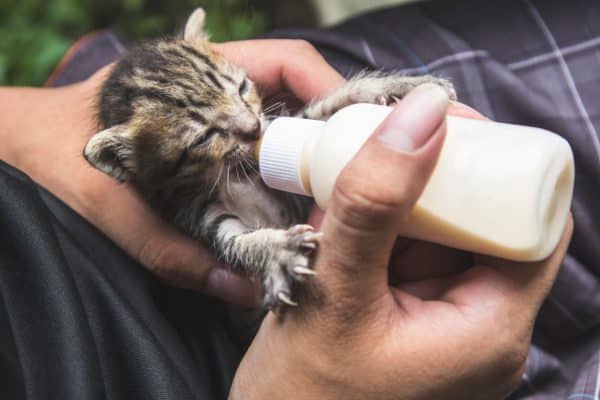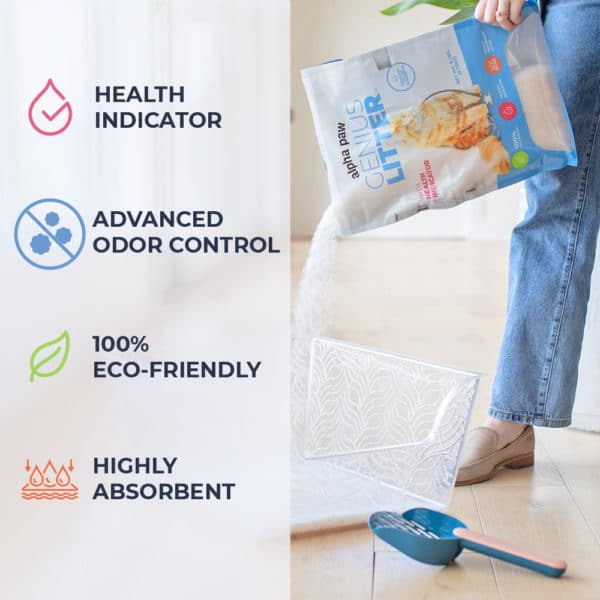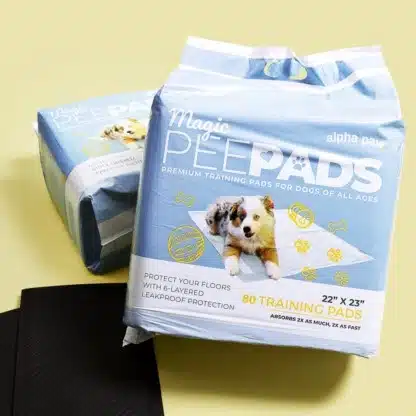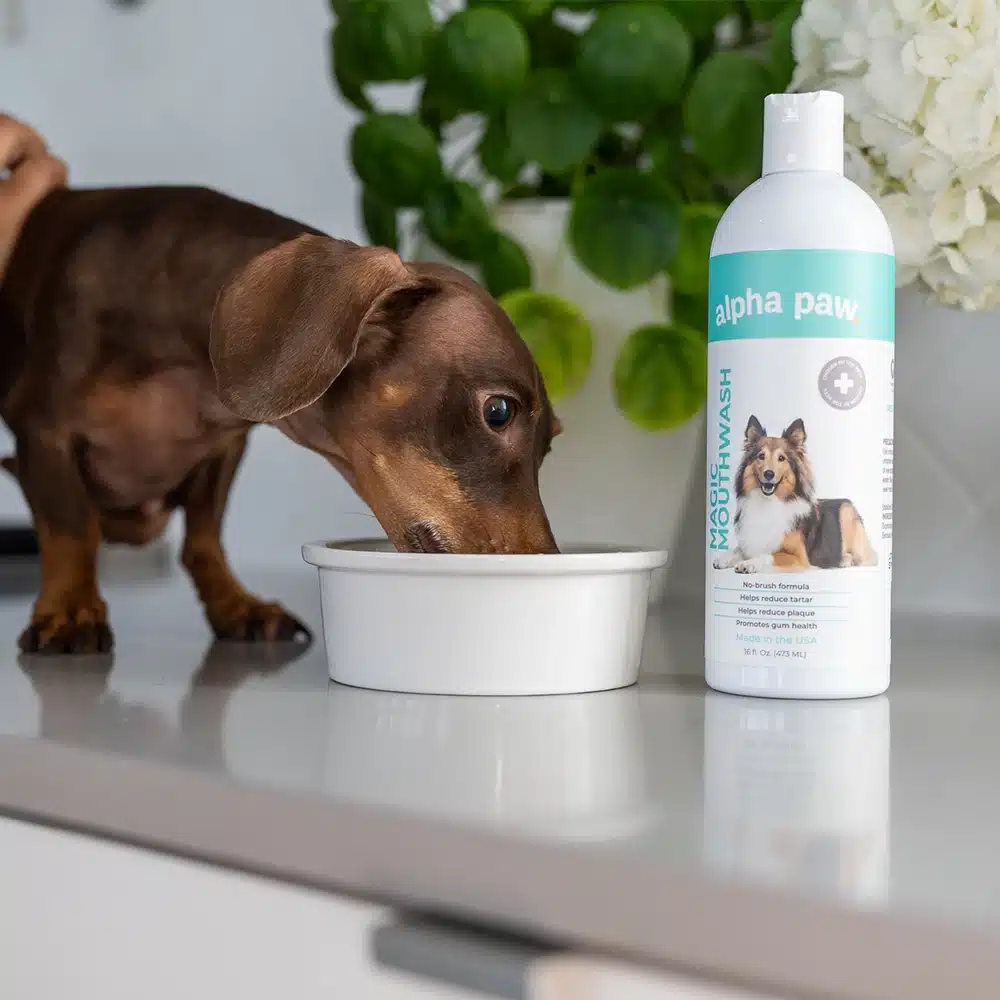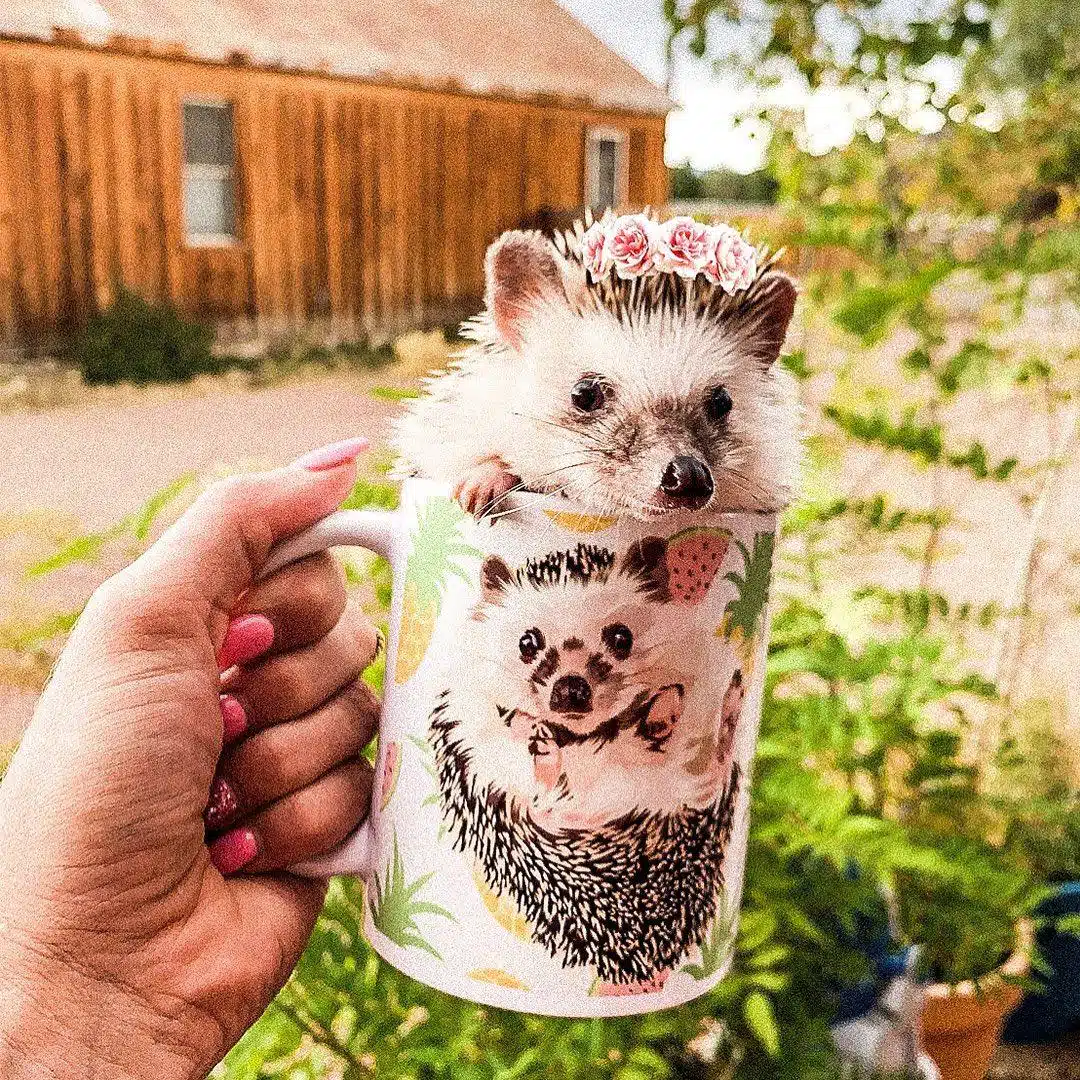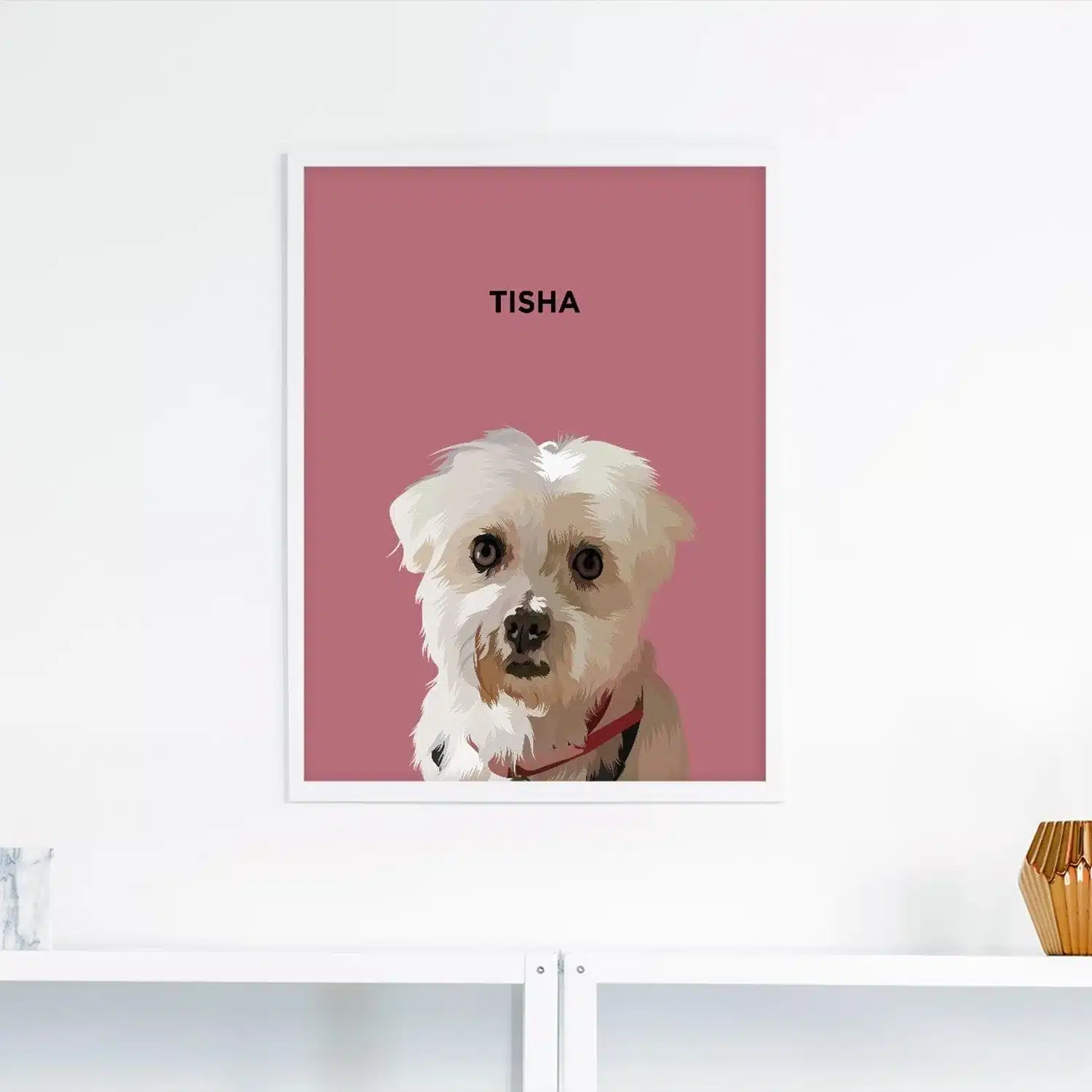Can cats drink milk? It’s one of the most controversial topics among cat owners, and there are some conflicting opinions about it!
Some say that cow’s milk is too different from a cat’s own mother’s milk and therefore not healthy for them. While others say that since it has calcium and protein, kittens and grown cats can have it as an occasional snack.
So who’s right and who’s wrong?
The purpose of this article is to help you understand the controversy surrounding milk and to answer all the main questions about whether or not you can give your cat milk safely, with the information provided by veterinarians and other experts.
Can Cats Drink Milk?
Basically, cats can drink milk, but it might cause them more harm than good. A cat’s body is specifically designed to digest meat and raw food – not dairy products.
Cats are unable to digest lactose, so they cannot drink milk.
If a cat drinks too much milk or eats cheese, this could make its stomach upset and lead to diarrhea and vomiting.
Dairy foods don’t provide any of the nutrients that a cat needs for healthy growth and development so most experts recommend against giving your pet any dairy products.
What Causes Cats to Get Sick from Milk?
The most common reason that cats get sick from milk is lactose and casein intolerance.
The majority of the time when a cat drinks milk, it can lead to an upset stomach due to both the lactose and casein in the dairy product.
In addition to lactose and casein, milk is a poor nutritional choice for several reasons. Read the other reasons below.
1. High-fat Content
Milk is high in fat content, which can cause abdominal pain and diarrhea. Giving milk to a cat can also lead them to obesity, clogged arteries, or heart disease.
2. Sugar
Milk products are not a good idea for cats because of their high sugar content. A cat’s diet should be low in sugar, as it can cause weight gain and diabetes.
3. High Calcium Content
This high calcium content can lead to kidney stones, urinary tract infections, or other renal problems.
4. High-calorie Content
100 ml of milk can provide more than half of a cat’s daily caloric requirements. This is not ideal for cats.
5. Preservatives and Artificial Flavorings
Artificial flavorings and sweeteners found in dairy products may cause cats to become addicted to them, making it difficult to switch their diets.
Milk can contain both preservatives and artificial flavoring which are also bad for your cat, so your pet should be fed an all-natural diet.
Can Kittens Drink Milk?
Yes, kittens can drink milk. But there are some important things to consider before feeding them any sort of dairy.
Kittens should drink the following milk:
- Their mother’s milk while she is nursing them.
- Kitten milk replacer (nursing and during weaning).
Kitten milk replacer is specifically formulated for a kitten’s nutritional needs. Therefore, it should always be used in place of any other type of milk if required.
Kittens should not be given cows’ milk because they do not need its high-fat content and it could lead to diarrhea and other digestive issues.
How long will Kittens Keep Producing Lactase Enzymes?
Lactase is the enzyme that allows the body to digest lactose, and adult cats don’t produce this enzyme naturally.
Most kittens will stop producing lactase by the time they are six months old. Even if they do drink milk or eat other dairy products, their digestive system won’t be able to break down those sugars.
Hence, these cats need to avoid dairy in order to avoid gastrointestinal symptoms like gas, bloating, diarrhea, and vomiting.
Is There a Certain Age When Cats Stop Drinking Their Mother’s Milk?
Kittens usually stop drinking milk from their mother’s breast when they’re about 6-12 weeks old when their systems stop producing enough lactase.
However, this is a very individualized process that can depend on many different factors. Some cats are weaned when they are just a couple of weeks old and some continue to nurse for much longer.
This is because some kittens are more insistent about nursing than others, and it can be difficult for a mother cat to break away from her young if she has several kittens.
Kittens often give up nursing because they have learned how to eat solid food by this time as well. Kittens begin eating solid food once their teeth begin coming in.
Is Milk Safe for Adults and Senior Cats?
While mother’s milk is a good source of nutrients for kittens, it’s not a necessary part of an adult or senior cat’s diet.
When your cat can’t produce lactase anymore, he or she will no longer tolerate lactose and you should avoid giving him or her dairy products.
After drinking milk, senior cats may suffer severe gastrointestinal problems, which are caused by lactose intolerance.
What are the Harmful Effects of Milk on Cats?
Cats cannot process milk as a form of sustenance because they lack an enzyme that is needed to break down lactose. This means that when a cat drinks milk, it passes through its system without being absorbed and just causes serious health issues.
Your cat may experience the following symptoms between 12 and 24 hours after ingesting high amounts of milk:
- Diarrhea
- Abdominal pain
- Vomiting
- Swelling
- Gas
- Itchy skin
- Bloating
What to Do If Your Cats Show Symptoms?
If your cat becomes sick after consuming the dairy product, you should contact a veterinarian immediately. What is going to happen next will depend on what type of dairy product was consumed and how much was consumed.
Some cats might experience diarrhea or vomiting as side effects, while other cats might experience an allergic reaction that can cause hives (skin reaction) or anaphylactic shock.
After seeing a vet, you might need to put your cat on a strict diet for about two to three weeks in order to allow time for the gut flora to recover from any possible damage that could have been caused by the consumption of the dairy product.
Is It Ok to Give Your Cats Milk Occasionally?
You may be tempted to give your cat some milk, but it’s not good for them. Although, some cats can consume milk in small quantities occasionally but it shouldn’t be included in their regular diet.
Once kittens have reached adulthood and their weaning age is passed, milk no longer holds all of the benefits that are found in a mother’s milk and may even cause difficulties due to the inability to digest it properly. After the age of 3 to 4 months, kittens should also not consume milk.
Why Does My Cat Seem to Have a Craving For Milk?
There is evidence that cats crave dairy products because of their flavors and scent.
Some experts believe it has more to do with how common dairy foods were at an earlier age when kittens were being weaned from their mothers.
Regardless, since many cats enjoy dairy flavors but cannot tolerate them as an adult, it is better for them if they never consume any as an adult cat.
Is There Any Other Milk that Cats Can Drink?
The truth is that cats can’t drink milk because their digestive system is different. However, there are some kinds of milk that your cat would enjoy.
● Human-grade Milk
Human-grade (lactose-free) milk is one option and it can be diluted with water or given to your cat in a small quantity. Unfortunately, it doesn’t have enough nutrients to serve as a substitute for meat.
● Goat Milk
Another option would be goat milk, which is lower in sugar than cow’s milk and less likely to cause allergies.
● Special Cat Milk
One more option would be to give your kitty special cat milk, which has been specially formulated for cats and contains extra vitamins and minerals. It also includes taurine which helps prevent heart disease.
Can I Give My Cat Milk Made For Them?
There are many different types of milk on the market, and they all have different ingredients that may or may not be appropriate for your cat.
You could give this to your cat as an occasional treat, but keep in mind that cats can’t process lactose so it’s important to make sure you’re giving them a product with lactose-free milk.
Despite the fact that this milk is less likely to give your cat a stomachache, it still contains the same amount of fat as any other milk and that can be harmful to your cat.
What Else Can I Give My Cat to Drink?
All your cat needs to drink is water. Fresh water is best, but tap water that has been filtered to remove chlorine and other contaminants will do in a pinch. Never give your cat cow’s milk or any other type of milk.
Water will keep your cat hydrated which is important for their health. If you would like to add flavor to your cat water, you can use something like chicken broth which can be found at most grocery stores.
You should also change their water dish every day because bacteria from their mouth can collect in it and make them sick if they drink from it again without washing it out first.
What to Do If Mother Cat Refuses To Breastfeed Her Kitten/s?
If a cat’s mother has refused to take care of her kitten, there are a few things that you can do to get it back up on its feet. In the first place, make sure you see a veterinarian as soon as possible.
Kittens have very little body fat and need to be fed more often than adult cats, so you will need to feed them every two hours.
Make sure that they have access to water at all times. Kittens don’t produce sufficient amounts of saliva and their stomachs are too immature for solid food until about six weeks old.
Use kitten milk replacers made from quality ingredients and feed about 3-5ml per kitten per feeding. It is best to use a very small syringe or dropper when bottle-feeding kittens to prevent aspiration pneumonia.
They also need a heat source in their environment as they cannot generate enough body heat on their own.
Key Takeaways
- Contrary to popular belief, cats cannot drink milk. Their digestive system can’t process lactose (the sugar in milk), which means they can’t digest dairy products.
- For this reason, cat parents have been discouraged from giving their cats milk for fear of gastrointestinal upset.
- Drinking water is the best choice for your cat when it comes to hydration
- If you have any questions about milk or other dairy products, your veterinarian is the best person to consult.
Importance of Pet Insurance
Pet insurance is a great way to protect your animal’s health. It can be hard to predict when an accident will happen, but with pet insurance, you’re covered.
There are a few different types of plans depending on your needs, and it only takes minutes to get coverage for your pet.
Some pet insurance companies will even cover 100% of veterinary expenses. So make sure to choose the best pet insurance plan for your furry friend.
Once you have a plan in place, vet bills will never be too high because they’ll already be covered by the policy.
It’s important that we all take care of our animals’ safety and well-being so they can enjoy their lives just as much as we do ours.
What Makes Genius Litter Different From Ordinary Litter?
Say goodbye to hauling heavy bags and hello to easy Genius Litter.
With our innovative non-clumping litter formula, you’ll need less of it. One bag of our disposable Genius Litter lasts up to a month, so you won’t need to refill the box as often and can save money on monthly costs.
One thing that separates us from traditional litter is that Genius Litter changes color to indicate when your cat has a potential health issue, so you can get them help before it becomes an urgent medical situation.
All you need to do is set up a delivery date with us each month, and rest easy knowing that Genius Litter will arrive at your doorstep every 30 days.
For a convenient solution for your cat, try Genius Litter today!
Why Is Lysine So Important For Your Pet?
Protect your pet’s immunity!
Have you noticed that your cat is coughing, sneezing, and having rapid breathing? Or maybe he/she has been scratching more than usual?
These are all signs of a weakened immune system. One way to prevent this from happening is by using lysine supplements.
Lysine plays a key role in your pet’s immunity because it helps to regulate the immune system.
Without enough lysine, your pets will be more susceptible to illness because their immune system can’t fight off infections as efficiently.
When they are sick, they will also be less able to absorb nutrients and make use of other supplements that can help them feel better.
Give your pet the support they need. Our Lysine supplement provides essential amino acids to help support a strong immune system.
Order now to get 300 one-scoop servings or 150 two-scoop servings and don’t worry about expiry!
80% of Dogs Develop Arthritis or Joint Pain by 7 Years old – Here’s How to Protect Them
Most of us train our dogs when they are puppies to jump up on furniture. We think it’s harmless (and easier than always lifting them), but for dogs, couches and beds are very high compared to the size of their bodies.
Every time they jump it compresses their back and applies enormous force to their joints.
It’s no wonder that an incredible 80% of dogs experience arthritis or joint pain by only 7 years old.
Luckily, there is a vet-recommended solution.
It’s the PawRamp by Alpha Paw. An adjustable ramp that allows dogs to safely get on and off couches and beds. PawRamp makes joining you in bed or on the couch effortless and fun.
As a bonus, you can use code SAVE35 to get $35 off the PawRamp today.

